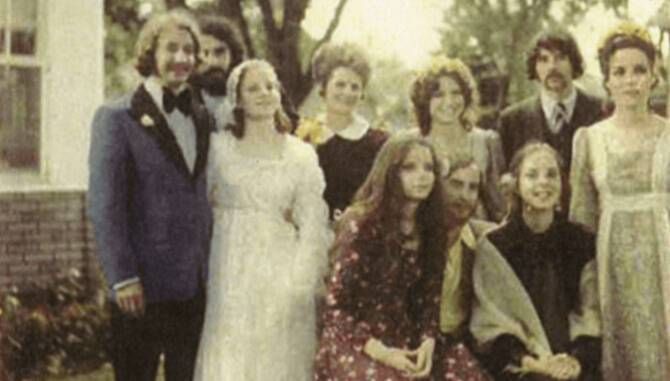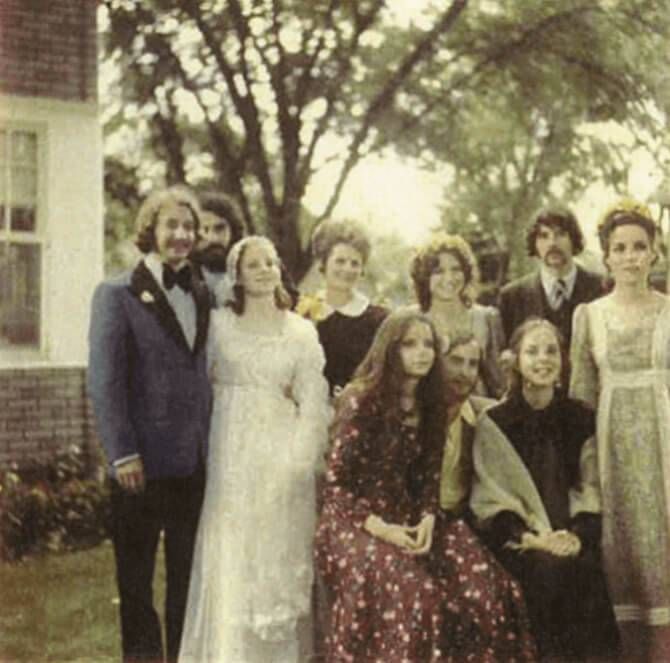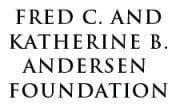Experience the Agony of a Family Awaiting News from the Vietnam War
A Minnesota Remembers Vietnam Story Wall submission by Teresa Eisenrich.

Its was a warm summer day when the flower-delivery truck pulled up to our house and dropped off a dozen roses for my mother. I believe the note read something like "Love Michael." I was 14 years old and remember my mother pacing and repeating "something bad has happened to Michael." My brother, the oldest of nine brothers and sisters, was drafted and was now serving in Vietnam.
My mother was a single mom after my father walked out on us when we were 1 to 9 years of age - so in that moment, as my mother unwrapped the wilted roses, all she had was me and another brother or sister to console her. I couldn't understand why she was so upset; after all, he sent flowers, so he must be fine. She took out her rosary [beads] and prayed the same rosary we prayed every night around the dining room table, all nine of us. She began to pace as she prayed.
Before my brother left for Vietnam, my mother told him that, if anything happens to him, he should call Dr. Strunk (our family doctor) [who would then contact the family]. In those days, communication took much longer. Unfortunately, the flowers came before the doctor's call. You can imagine how my mother felt, not knowing what had happened, but imagining that he was wounded in a hospital somewhere, how badly she didn't know.
All I could offer my mom was a hug and a "Don't worry, Mom, I'm sure he's fine." I needed my mom to be strong [because] I needed her at this moment, too. I couldn't bear to watch her go through this.

She finally got a call from the doctor, and he informed her that her son was wounded and in the hospital. He stepped on a land mine and would be in the hospital for a month or so. My mother so wanted to go see him, but Michael begged her not to come. He said it would be much too hard on her - not a place he would want his mother to see, with too many wounded young men. So reluctantly, she [stayed home]. She also did not have the money to fly to see him.
As the days slowly passed, we waited and continued to pray for the day he would come home. Then one day, maybe two weeks or more after the roses came, there was a knock on the door. It was the mailman. He greeted my mother with a smile and handed her my brother's duffel bag. The poor mailman didn't know what to say, so he said nothing. My mother set the bag down on the floor of the front porch. My mom, my sister and I just stood and looked at it; it was as if they picked it up right off the combat field and dropped it in our front porch.
My mother put her hand in and pulled out his clothing, one piece at a time, slowly and methodically.
I remember that the bag was all reddish, with sand or dirt all over it. My mother just kept shaking her head. After a few moments, she began to untie it, and she was crying, and I kept saying that it was going to be alright, that at least we know he is alive. She continued to pull the string until the bag was open enough for us to see in. Very slowly, we looked inside. It felt sacred: This duffel bag held his life, his time spent on the battlefield. We were sharing a moment in time from a fighting soldier to a wounded man, from the battlefield to our front porch.
My mother put her hand in and pulled out his clothing, one piece at a time, slowly and methodically. It was like pulling him out of the bag. She set each piece of clothing down very gently, because all she had was his war clothing until he was to come home and she could hold him once again.

This story is part of the collection The Call to Serve: Stories of Sacrifice, War and the Way Home, which was funded by the Fred C. and Katherine B. Andersen Foundation.
